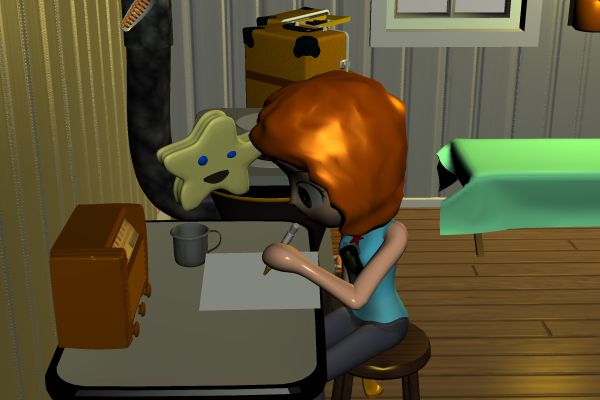Saturday, July 03, 2021
Bite-size wisdom
Lately I've been including episodes of 'Calling All Detectives' in my bedtime playlist. This was a SHORT and LOW-BUDGET 1948 series. Each episode was just 8 minutes. There was a pause after the first 2, where the station would insert ads.
I think** the stations were also given a question about a detail in the plot, to be asked during the pause. Then the stations could run a contest for best guess afterward, filling out the standard 15 minute slot. This interactive material isn't contained in the clips as recorded on archive.org, but it's implied in each episode.
No music, exactly three sound effects (car accelerating, footsteps, paper rustling) and one actor reading all the parts. Female characters were silent.
Despite the extreme cheapness, the writers were excellent. They packed a full story into 8 minutes, with character development, plot, and moral. Each episode feels like a half hour.
In this episode, the detective is called simultaneously by two high-dollar stamp collectors who are accusing each other of theft. He uses constants and variables expertly, determining that a crooked stamp dealer is playing these two against each other to manipulate prices.
At the end the narrator says:
When two clients accuse each other, always look for the hand of a third party.
Excellent advice. We won't hear this moral today, because the entire world is based on Symmetrical Scapegoating.
Nevertheless, the rule is universal. When you're supposed to argue about a specific question, you know the REAL question is elsewhere. Deepstate uses this trick in every possible subject.
= = = = =
** Footnote on quiz:
 I'm convinced that I read about this interactive quiz somewhere, but now I can't find it in online descriptions of the program. The narrator does mention it at the end of each episode.
= = = = =
Later after more listening:
This episode was recorded off the air at WGN, not from the transcription disk. It includes the quiz question and answer, plus a bonus question not related to the program. (What was SS Van Dine's real name?) Prize for the bonus question was $180, about a month's basic wages.
And this one includes a remarkable 'extended conceit'. The case deals with a poet who forced his heirs to speak in rhyme until they figured out the location of the fortune. The executor of the estate was recording them day and night with a wire recorder, so they couldn't break the terms; and the detective had to speak in rhyme as well.
I'm convinced that I read about this interactive quiz somewhere, but now I can't find it in online descriptions of the program. The narrator does mention it at the end of each episode.
= = = = =
Later after more listening:
This episode was recorded off the air at WGN, not from the transcription disk. It includes the quiz question and answer, plus a bonus question not related to the program. (What was SS Van Dine's real name?) Prize for the bonus question was $180, about a month's basic wages.
And this one includes a remarkable 'extended conceit'. The case deals with a poet who forced his heirs to speak in rhyme until they figured out the location of the fortune. The executor of the estate was recording them day and night with a wire recorder, so they couldn't break the terms; and the detective had to speak in rhyme as well.
 I'm convinced that I read about this interactive quiz somewhere, but now I can't find it in online descriptions of the program. The narrator does mention it at the end of each episode.
= = = = =
Later after more listening:
This episode was recorded off the air at WGN, not from the transcription disk. It includes the quiz question and answer, plus a bonus question not related to the program. (What was SS Van Dine's real name?) Prize for the bonus question was $180, about a month's basic wages.
And this one includes a remarkable 'extended conceit'. The case deals with a poet who forced his heirs to speak in rhyme until they figured out the location of the fortune. The executor of the estate was recording them day and night with a wire recorder, so they couldn't break the terms; and the detective had to speak in rhyme as well.
I'm convinced that I read about this interactive quiz somewhere, but now I can't find it in online descriptions of the program. The narrator does mention it at the end of each episode.
= = = = =
Later after more listening:
This episode was recorded off the air at WGN, not from the transcription disk. It includes the quiz question and answer, plus a bonus question not related to the program. (What was SS Van Dine's real name?) Prize for the bonus question was $180, about a month's basic wages.
And this one includes a remarkable 'extended conceit'. The case deals with a poet who forced his heirs to speak in rhyme until they figured out the location of the fortune. The executor of the estate was recording them day and night with a wire recorder, so they couldn't break the terms; and the detective had to speak in rhyme as well.
Labels: From rights to duties
